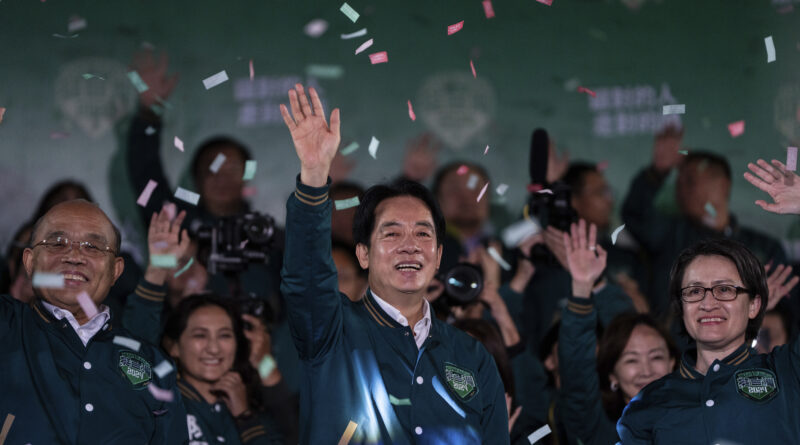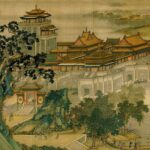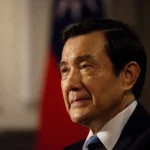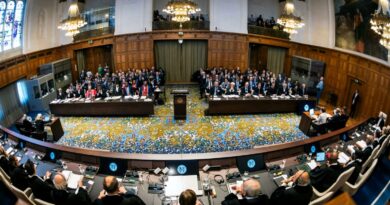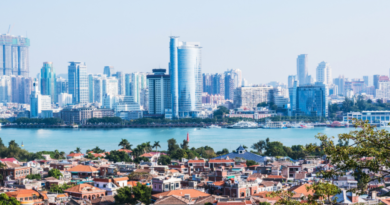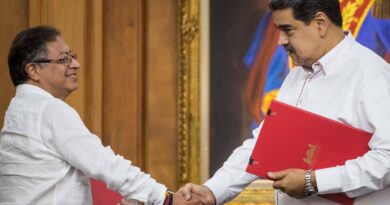Elections: More PDP in Taiwan, more tension in the Strait?
XULIO RIOS
Taiwan's presidential and legislative elections have ushered in a new political time on the island with simultaneous signs of continuity, crisis and change. Among the immediate evidence that we could identify, we could mention: the continuity of the PDP (green) in the presidency ensures continuity in Tsai Ing-wen's policies, perhaps deepened with new vigor; The persistence of the KMT (blue) as the main opposition force faces a double challenge: on the one hand, it must digest the ambivalence of the result - presidential defeat and legislative victory - without affecting the stability of its complex internal unity; on the other, he must manage the convoluted relationship with the ascendant PPT (white) of Ko Wen-je, electorally consolidated and a determining force in the Legislative Yuan with its eight seats.
The frustration of the KMT-PPT electoral alliance casts shadows on their political collaboration in the future. To a certain extent, Hou You-yi, by coming second, saves the furniture in the KMT, which in many polls at the beginning of the campaign started as third, but loses Taiwan. If the PDP has managed to capitalize on the sovereign or green vote - with the absorption of the support of other forces such as the New Power Party or the Taiwan State Construction Party that have not achieved representation - the KMT has not managed to gather the anti-democratic vote. -green. There was no last-minute “useful vote” in favor of Hou in the blue and white segment. And many may think that if Ko had agreed to lead the hypothetical coalition, the opposition would have won over a PDP that showed wear and tear in relation to Tsai Ing-wen's result in 2020. The election of the presidency of the Legislative Yuan - the KMT is the force with the most seats - can offer clues about how intricate or not their post-electoral understanding is.
What can be expected from Lai Ching-te as president is an intensification of the projections recorded in the last two terms of the PDP with Tsai Ing-wen at the helm. That is, a firm commitment to political rapprochement with the United States, also economically, defensively and strategically. With more Washington and less Beijing on the agenda, his victory represents an important boost to the White House strategy for the region, which will foreseeably be reciprocated with more support in all areas within its reach, that is, in terms of defense (4.500 million dollars in the next 4 years), economic security, technological collaboration and diplomatic support. Lai's Taiwan reaffirms its validity and importance as a pivotal point for the US in Asia.
On the contrary, the result is a disappointment for Beijing. The double approach of peace-war and prosperity-decline has not penetrated Taiwanese society, weighed down by a forced sense of urgency that was not even able to overcome the individual prominence of the two main opposition forces, incapable of reaching an agreement. long and fruitlessly negotiated for months.
In view of the result, the Chinese authorities face the challenge of rethinking their approach to policy towards Taiwan, largely based on concepts devised several decades ago and in a context clearly different from the current one. This shipwreck cannot be solved with temporary proposals, but requires approaches with greater ambition and adapted to the present. This is essential to prevent the perception from taking hold in its leadership that peaceful reunification on known bases is no longer viable in a scenario of progressive distancing from continental influence, especially among new generations.
Tensions in the Taiwan Strait could increase in this new situation. And it could experience even more compromising developments as a result of the November elections in the US. The ability of both parties, China and the US, to moderate disagreements and continue exploring the framework defined last November in San Francisco has, without a doubt, the most determining challenge in Taiwan.

